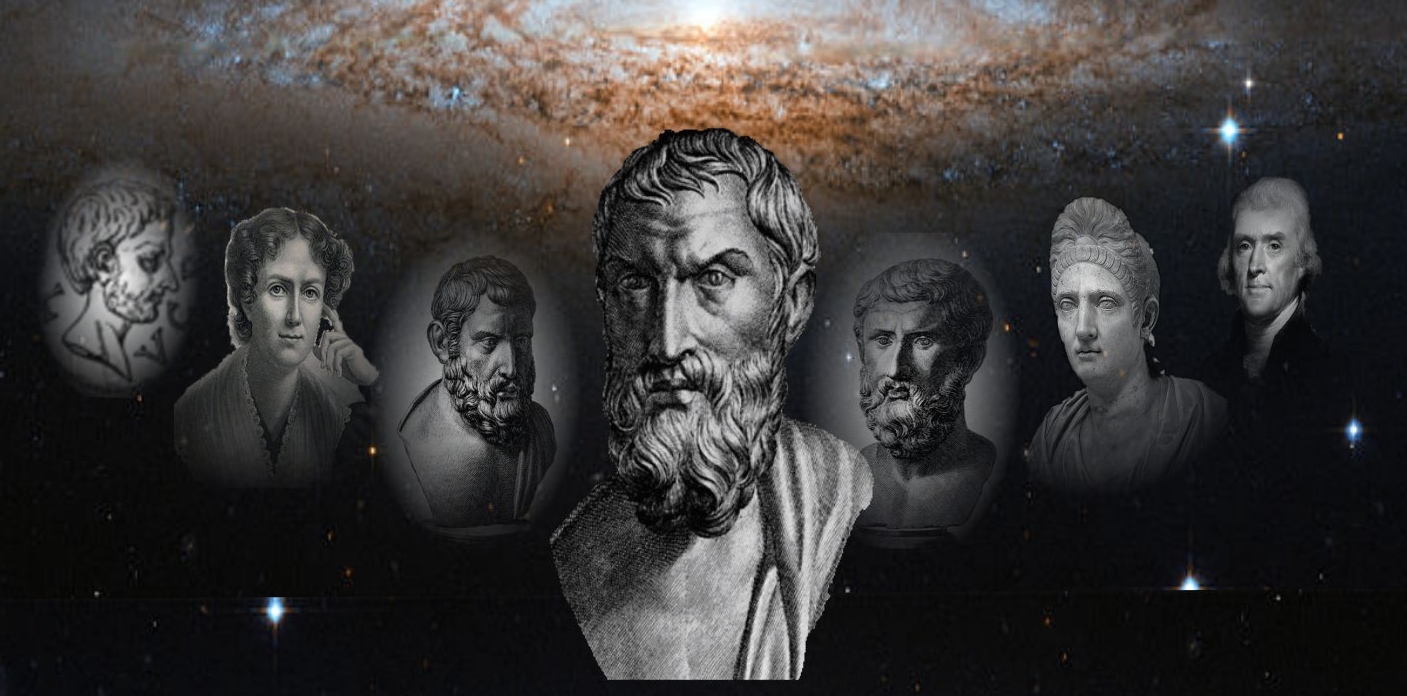Peace and Safety For Your Twentieth of July!
Peace and Safety to the Epicureans of today, no matter where you might be!
Vatican Saying 45: “The study of nature does not create men who are fond of boasting and chattering or who show off the culture that impresses the many, but rather men who are strong and self-sufficient, and who take pride in their own personal qualities not in those that depend on external circumstances.”
We seem to be in the midst of a long hot summer here in the Northern Hemisphere, and the season is far from over. Across the globe troubles are breaking out in almost every corner, and the Epicurean homeland in Greece is ground zero for financial earthquakes that threaten to spread across Europe, if not the globe.
It can be discouraging to watch the news every day and see how little the world has learned from Epicurus. Our leadership class is as fond as ever of boasting and chattering, but most of all they wish to show off their “culture” that impresses the many, rather than showing off their understanding of the truth about the nature of things. Religion and mainstream philosophy have united to create a political orthodoxy from which no dissent is allowed, and those that do dissent are demonized. Almost every position legitimately traceable to Epicurus (as opposed to spurious “grin and bear it” positions of his Stoic rivals) is dismissed as anti-social heresy, and few understand the Epicurean doctrines well enough to even begin to think about applying them.
“Living simply” is widely endorsed as political and social orthodoxy despite the explicit rejection of this interpretation in VS 63: “There is also a limit in simple living, and he who fails to understand this falls into an error as great as that of the man who gives way to extravagance.”
And so one can read endlessly on the internet, endlessly looking for insight from Epicurus, until one is left with the gloomy conclusion that the brilliant subtlety of his philosophy has been mashed into incoherence into “what’s good is easy to get and what’s terrible is easy to avoid” – as if this should be taken at face value as the height of wisdom.
But does all this mean that we should despair that all is lost, and that we are helpless prisoners of religion and the stoic denial of pleasure and emotion? Not at all.
There is no reason that we ourselves cannot become people “who are strong and self-sufficient, and who take pride in their own personal qualities not in those that depend on external circumstances.” While this may mean that we must temporarily or permanently put aside our dreams of unlimited personal luxury and worldwide brotherly love, we need to remember that such goals as these have always been pie-in-the-sky imaginings and never our birthright. The later ancient Epicureans saw their own world collapse around them, as overzealous religionists destroyed the Greco-Roman civilization under which they flourished, so what we are going through today is not unique to us. Although our civilization may meet the same end, individually we have many advantages in science and technology and communication that the ancient Epicureans never dreamed of having. We can – and must – use these tools to stay in touch with each other, to study true philosophy, and fill our days with pleasures that are within our control.
In almost any circumstance we may confront, we should keep in mind that “The benefits of other activities come only to those who have already become, with great difficulty, complete masters of such pursuits, but in the study of philosophy pleasure accompanies growing knowledge; for pleasure does not follow learning; rather, learning and pleasure advance side by side.” [VS27]
We may find ourselves with a front seat for watching the collapse of Western Civilization, but so long as we can, we should study and apply the insights that Epicurus left us. It may be a lonely path, but it has always been – and always will be – the path that Nature created for us.
And to the day we die – no matter how or when that will be – we ought to remember Epicurus with the same respect and admiration that Lucretius wrote about:
WHO is able with powerful genius to frame a poem worthy of the grandeur of the things and these discoveries? Or who is so great a master of words as to be able to devise praises equal to the deserts of him who left to us such prizes won and earned by his own genius? None, methinks, who is formed of mortal body. For if we must speak as the acknowledged grandeur of the things itself demands, a god he was, a god, most noble Memmius, who first found out that plan of life which is now termed wisdom, and who by trained skill rescued life from such great billows and such thick darkness and moored it in so perfect a calm and in so brilliant a light.
…
But unless the breast is cleared, what battles and dangers must then find their way into us in our own despite! What poignant cares inspired by lust then rend the distressful man, and then also what mighty fears! And pride, filthy lust and wantonness? What disasters they occasion! And luxury and all sorts of sloth?
He therefore who shall have subdued all these and banished them from the mind by words, not arms, shall he not have a just title to be ranked among the gods?
_________
As Seneca recorded: Sic fac omnia tamquam spectet Epicurus! So do all things as though watching were Epicurus!
And as Philodemus wrote: “I will be faithful to Epicurus, according to whom it has been my choice to live.”

